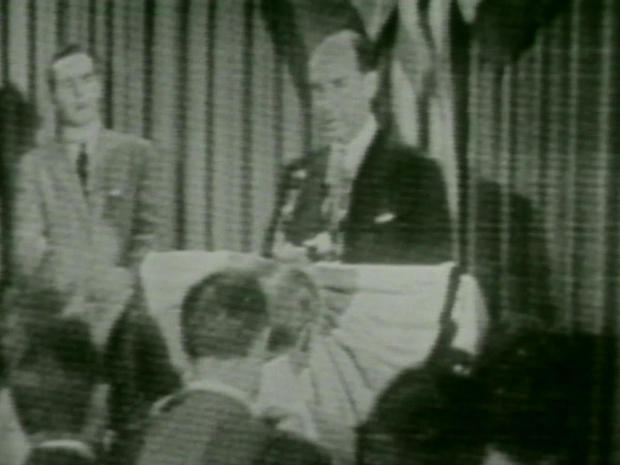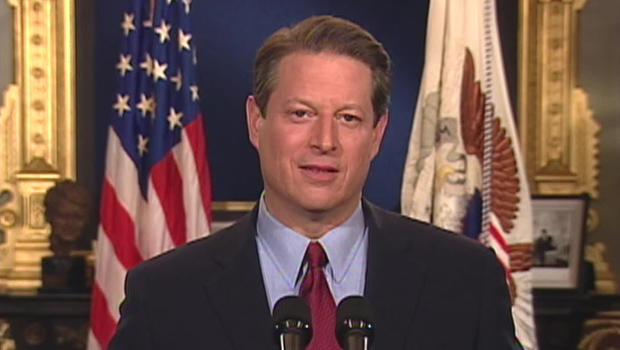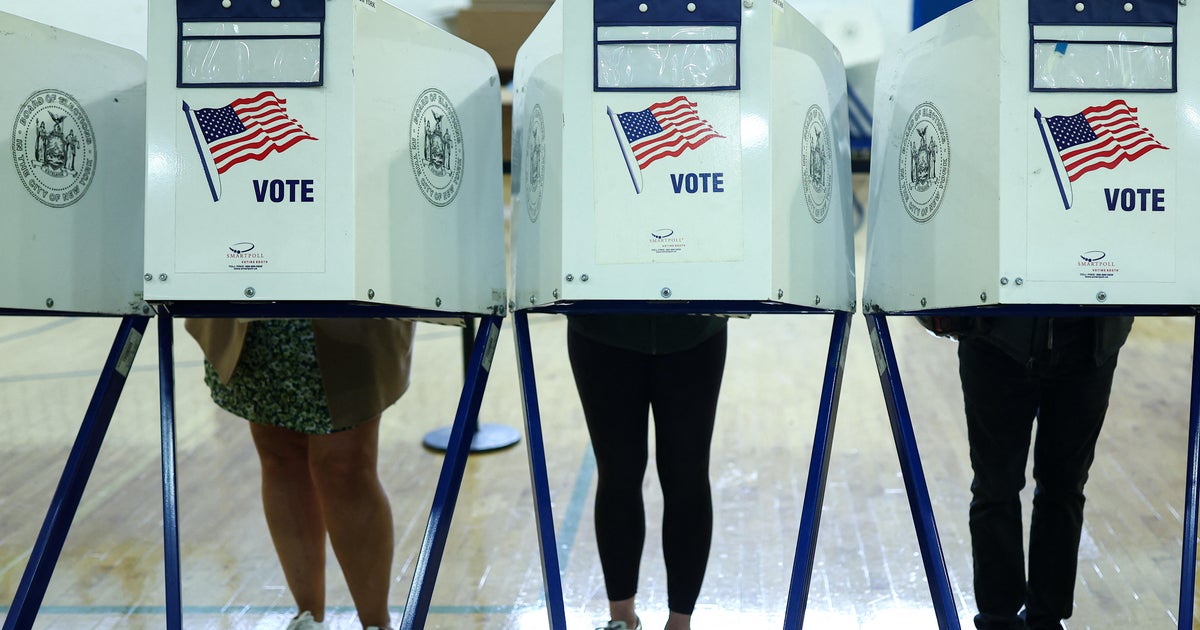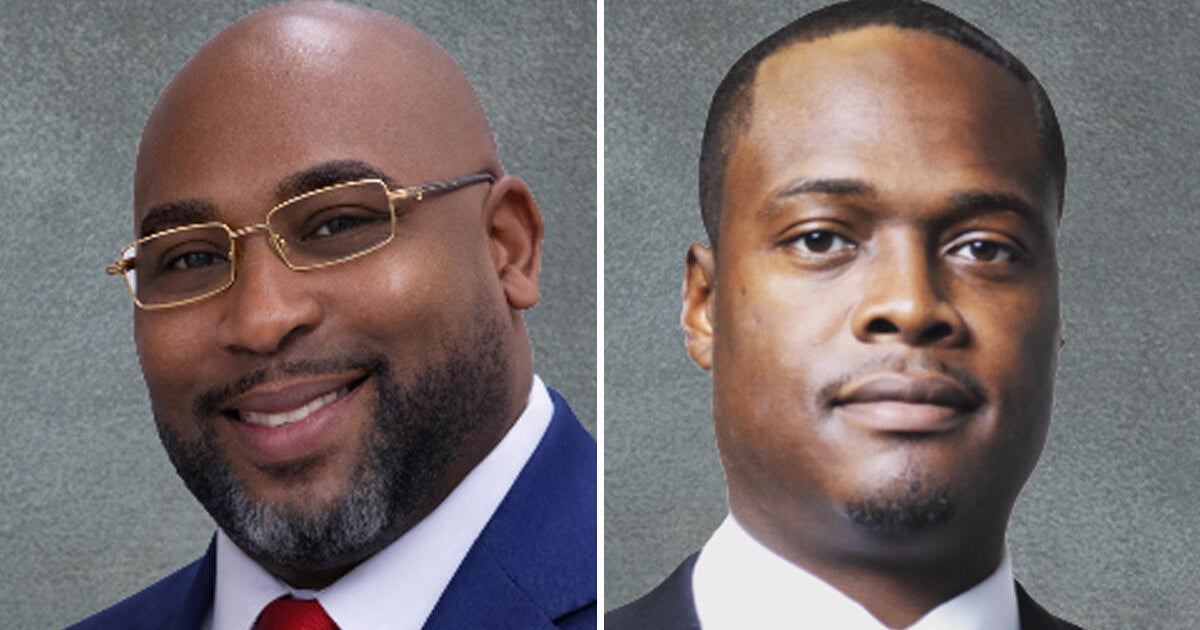An Election Night tradition: The concession speech
Election Night is one of the few remaining events when the entire nation gathers around the electronic campfire to learn the nation's political future together, whether the winner is expected ("President Nixon has been reelected") or expectations are upended ("Hillary Clinton has called Donald Trump to concede").
We watch because we are part of it, reports CBS News chief Washington correspondent Major Garrett.
"This is bigger than the Super Bowl, bigger than the World Series," said presidential historian Doris Kearns Goodwin. "But the big difference is, you may get completely caught up in the drama of those other sporting events, but we are participants – we're not spectators in this."
1952 set a new tone for election nights in the television age. CBS pulled out all the technological stops. Before the Space Age was a well-known term, CBS introduced Remington Rand's UNIVAC computer. It predicted the night's winner, General Dwight D. Eisenhower.
But speaking that night before Eisenhower, Illinois Governor Adlai Stevenson – resoundingly defeated – gave the first nationally-televised concession speech in American history.
"The people have rendered their verdict, and I gladly accept it," Stevenson said. "It is traditionally American to fight hard before an election. It is equally traditional to close ranks as soon as the people have spoken."
Kearns Goodwin said of Stevenson, "He's got that understanding of his responsibility, and setting a tone I think that becomes an example for all the people who concede afterwards. And those same themes you hear throughout: we fought hard, we've come to an end, we accept this result, we will work together."
As Sen. John McCain said in 2008: "Senator Obama and I have had, and argued, our differences, and he has prevailed."
And President George H.W. Bush said, after losing to Arkansas Governor Bill Clinton, "We have fought the good fight."
And Vice President Richard Nixon, after Massachusetts Senator John F. Kennedy was named the winner, said, "Once the decision is made, we unite behind the man who was elected."
But not every Election Night has a concession speech – some elections don't even end on Election Night.
In 2000, Vice President Al Gore withdrew his concession to Texas Governor George W. Bush, after Florida – called for Gore, then for Bush – fell into the "too close to call" category. Gore called Bush back and retracted his concession.
Tallahassee attorney Barry Richard recalled, "I think, like most people in the country, I went to bed with a scene on my TV showing the vote count in Florida. I woke up the next morning, turn on my TV, and realized that nothing had changed and we still didn't have a president."
Moments later, Richard got a call from Bush's team. A lawsuit had been filed in Palm Beach County, and Bush needed a lawyer.
The recount transfixed the nation. Voters who never heard of or thought about ballot design came to know about the "butterfly" variety (in which confused Gore voters mistakenly punched Pat Buchanan), and hanging chads – the remains of a punchcard that don't entirely separate from the hole.
In a flash, Barry Richard became one of the most recognized lawyers in America, as he told the press, "You can keep counting forever – when do you stop?"
He recalled, "As soon as I stepped out of my office door, there were a mass of reporters walking backwards in front of me wherever I went."
The confusion and chaos continued for 36 days, ending only when the United States Supreme Court handed down a 5-4 ruling stopping a hand recount of ballots in Florida, ensuring Bush would win the state's electors, and therefore the presidency.
Could what happened in Florida back then happen today? This year, several states will count millions more mail-in ballots after November 3, and that could delay final results for a day, or more. Already in excess of 400 lawsuits have been filed about election rules. Unlike in 2000, lawyers for both campaigns stand ready to fight over any perceived infraction.
But for former Bush attorney Barry Richard, that's not the biggest difference he sees between this year's election and the contest between Bush and Gore: "It never even was a consideration for a candidate to say that he wouldn't accept the ultimate results once they were known," he said.
Donald Trump, as candidate and now president, has repeatedly refused to say if he would accept the results of an election he did not win. "We want to make sure the election is honest, and I'm not sure that it can be," Mr. Trump said. "The only way we're going to lose this election is if the election is rigged. Remember that."
Back in 2000, just a day after the Supreme Court's ruling, Gore addressed the nation: "Just moments ago, I spoke with George W. Bush and congratulated him on becoming the 43rd President of the United States. And I promised him that I wouldn't call him back this time. … Let there be no doubt, while I strongly disagree with the court's decision, I accept it. … And now, my friends, in a phrase I once addressed to others, it's time for me to go. Thank you, and good night, and God bless America."
Kearns Goodwin said, "I think it really did put to rest what had been, at that point in our modern history, the most tumultuous election."
She said, whether we know the winner on Election Night or a day or two later, this year's losing candidate has a responsibility greater than any nominee in modern history to help heal the nation, or at least try.
"This is the final responsibility that they have to bear," Kearns Goodwin said. "They had a responsibility to their supporters, a responsibility to try to win this election. And now this larger responsibility is to help the country get through this moment, and then, finally, to bring a closure to it."
For more info:
- Doris Kearns Goodwin
- Barry Richard, Greenberg Traurig, Tallahassee, Fla.
Story produced by Mark Hudspeth. Editor: Remington Korper.






